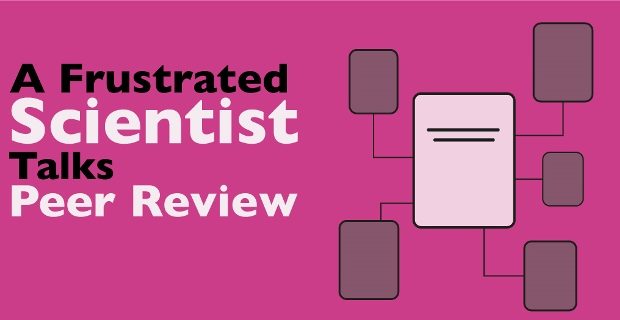
A scientist’s fairy tale might go something like this: gather enough significant data, publish your paper, the end. However, far from a simple ‘happily ever after’, the story of what happens between the collection of great data and publication is far more complex.
First-time authors are usually a bit naïve, thinking the publication process is going to be quick and easy as long as they target the right journal and their paper is well written. But once you discover peer review and the struggle to publish, you realize that having gathered your data was actually only the beginning. I’m in the middle of the
process myself right now.
I know that some of the papers I read are old news by the time they reach me. No one would read the news with months of delay, but that’s what we scientists do.
Even before submission, you may have lengthy discussions with your co-authors, because suddenly everyone claims that they deserve a better spot than you on the authors list. Once you have agreed on the details of authorship and submitted your paper, you start the lengthy and complicated process of peer review.
I’m not an expert on peer review or an editor. I’m just a frustrated scientist. Getting published is essential to building a career and it’s not easy. It is frustrating to know that my research won’t be published for months. I know that some of the papers I read are old news by the time they reach me. No one would read the news with months of delay, but that’s what we scientists do.
Science often uses state-of-the-art modern technologies, yet the publishing process hasn’t changed in decades. It is subject to numerous flaws, so in the following I am going to concentrate on the ones that stood out for me – as a non-expert in publishing – in the discussions at #SpotOn2016.
- Single-blinded peer review: with this type of peer review, the names of the reviewers are hidden from the authors (the authors are ‘blinded’ to the reviewers’ identities) but the reviewers know who the authors are. A potential issue could be that some reviewers may see the authors as competition and thus review a
paper more harshly than may be warranted. This may lead to an unfair disadvantage for the authors based on things like the history between ‘competing’ labs. A way around that would be either double-blinded peer review (where both reviewers and authors remain anonymous) or, even better, open peer review where reviewers are not anonymous and their comments are openly available. But open peer review comes with problems of its own. For example, a junior scientist might not feel comfortable reviewing a more senior scientist’s work if they know that their name is going to be published alongside their review. - Incentive to review: Many reviewers make an effort to judge manuscripts honestly and on merit. However, peer review is a lot of work and reviewers don’t get rewarded for it. Initiatives like Publons are trying to change that.
- Early-career researchers and peer review: Meanwhile, early career researchers who may make great reviewers don’t get invited to review because they are not known by editors as experts in their field. These issues suggest that a system change may be in order – not just changes to peer review itself but also to how peer
reviewers, authors and their work are evaluated.
A junior scientist might not feel comfortable reviewing a more senior scientist’s work if they know that their name is going to be published alongside their review.
These changes involve all of us and #SpotOn2016 was a great opportunity to share ideas on how this could be achieved. For me personally, it also opened my eyes to the fact that other people are struggling with the publishing process too – and in many different ways.
Before I came to #SpotOn2016, I hadn’t realized how many people were already working on new initiatives such as Authorea, Overleaf and Paperhive, to improve peer review and publishing, and to facilitate collaboration between researchers.
Change may not happen overnight but it certainly feels like it’s coming.
As a first step towards that change, I would like to see double-blinded review introduced as standard so I wouldn’t feel I was being judged based on my boss’s, my colleague’s or my name but rather on the work I present in the paper I submit. Maybe a change like that could lead the way towards more complex changes. Also, maybe publishers could find ways of allowing researchers to apply to be reviewers, so that junior scientists not yet known to the editors would be given the opportunity to become reviewers.
Comments